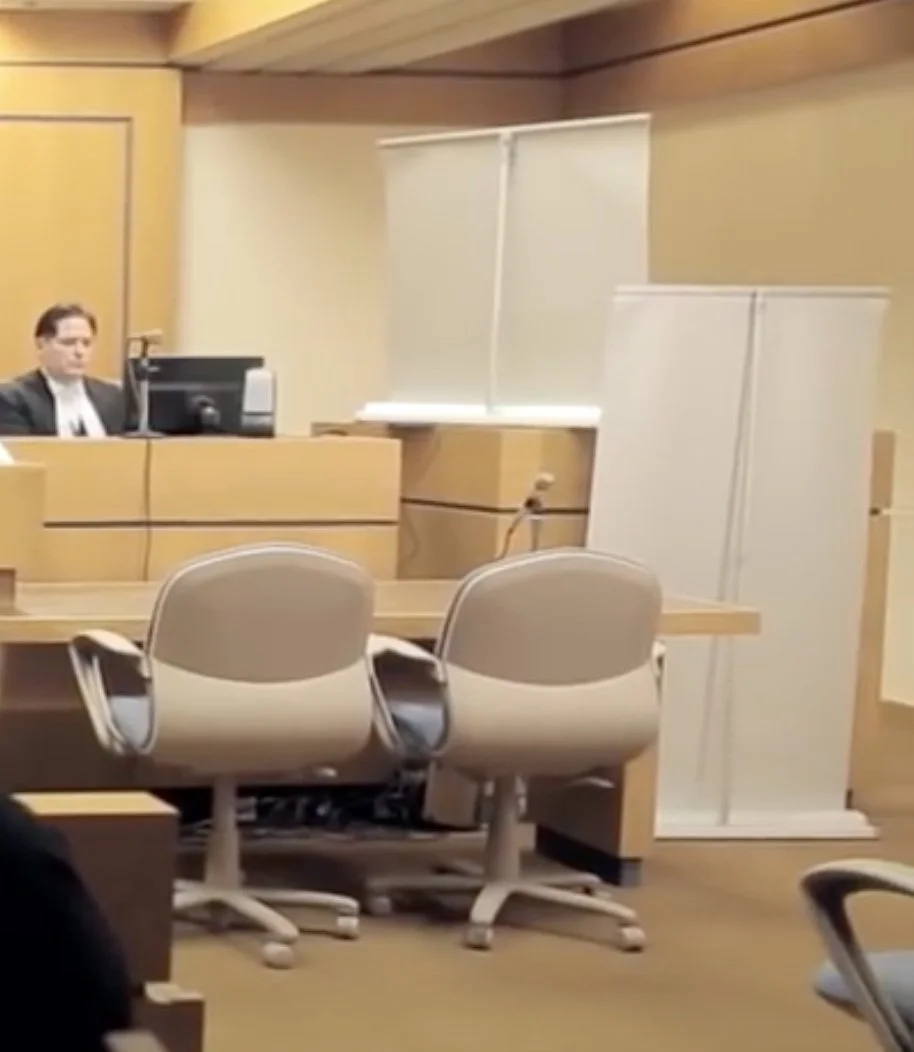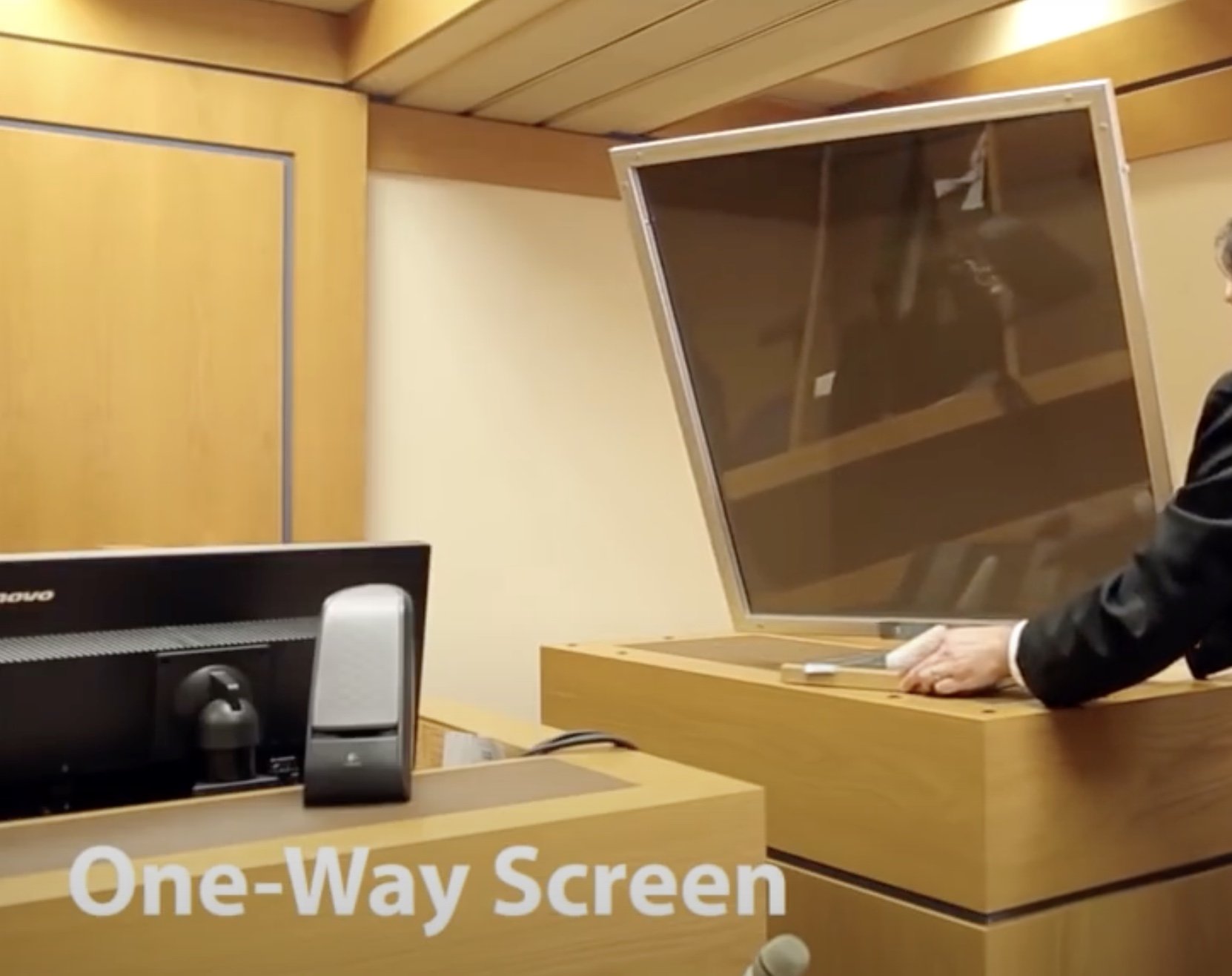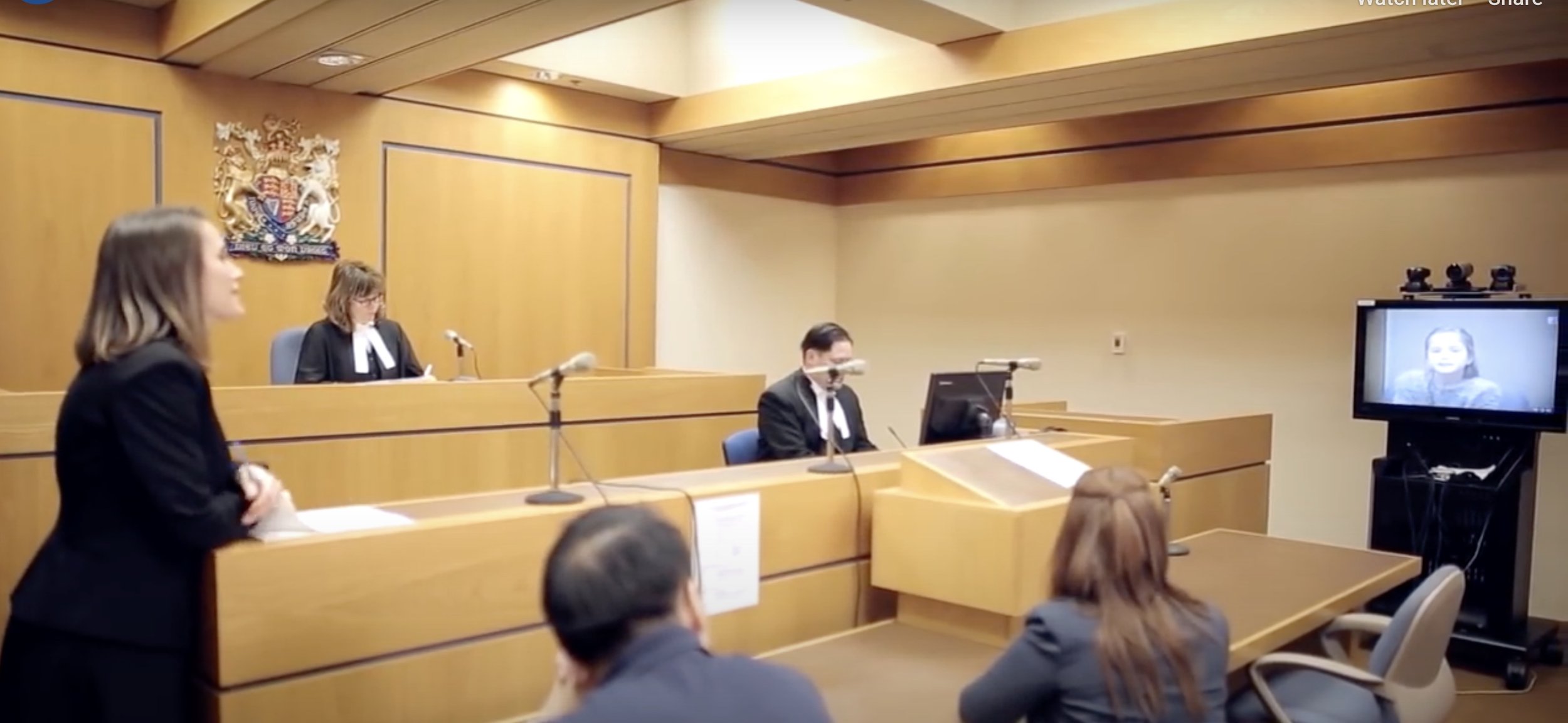In Court Support
Testimonial aids were created with two main goals in mind:
Encouraging Witness Participation: They are designed to make it easier for witnesses, especially children and vulnerable individuals, to take part in the criminal justice system.
Preventing Secondary Victimization: These aids aim to protect witnesses from experiencing further harm or distress when they are involved in the criminal justice process. This helps reduce the negative impact on witnesses.
The in-court options are:
Privacy screens so you can't the accused or public
Testifying outside the courtroom via MSTeams
Having a support person near you while you testify
Depending on availability and approval, a court service dog.
Requirements under the Criminal Code and the Canadian Victims Bill of Rights have ensured that Testimonial Accommodation Kits have been provided to every courthouse in the province, including Circuit Courts.
A privacy screen so the witness can't see the accused and/or the public:
Testifying outside the courtroom
Think of it like face timing with the courtroom. You will either be testifying from another room in the courtroom by MSTeams or in certain situations testifying from home or another safe location of your choice.
A Note for Victim Services Workers
Before a witness testifies with testimonial accommodations, it's a good idea to explain and demonstrate these accommodations to them. Both Crown Counsel and the Victim Service Worker can offer information to help the witness become familiar with these options. When appropriate, Crown Counsel can work with CSB registry staff to arrange a demonstration for the witness.
Depending on availability at the courthouse, it is also possible to arrange a tour of a courtroom for a witness.
If a victim plans to share a victim impact statement using testimonial accommodations, it's also advisable to explain these accommodations to them.
Witnesses and victims can feel free to reach out to Crown Counsel if they have any questions about these accommodations. It's helpful to let Crown Counsel know as soon as possible if there's a possibility that testimonial accommodations may be needed or requested.
Furthermore, victim service workers can assist in facilitating communication between the witness and Crown Counsel when it comes to any questions or concerns regarding these accommodations.
Lastly, it's a good practice for victim service workers to check whether the victim's support person could potentially be called as a witness. Although it's uncommon, if the support person accompanying the witness is a friend or family member, it's wise to check with Crown Counsel to confirm whether they can be present during the testimony. This helps ensure there are no unexpected surprises that could leave the victim without needed support in court.




